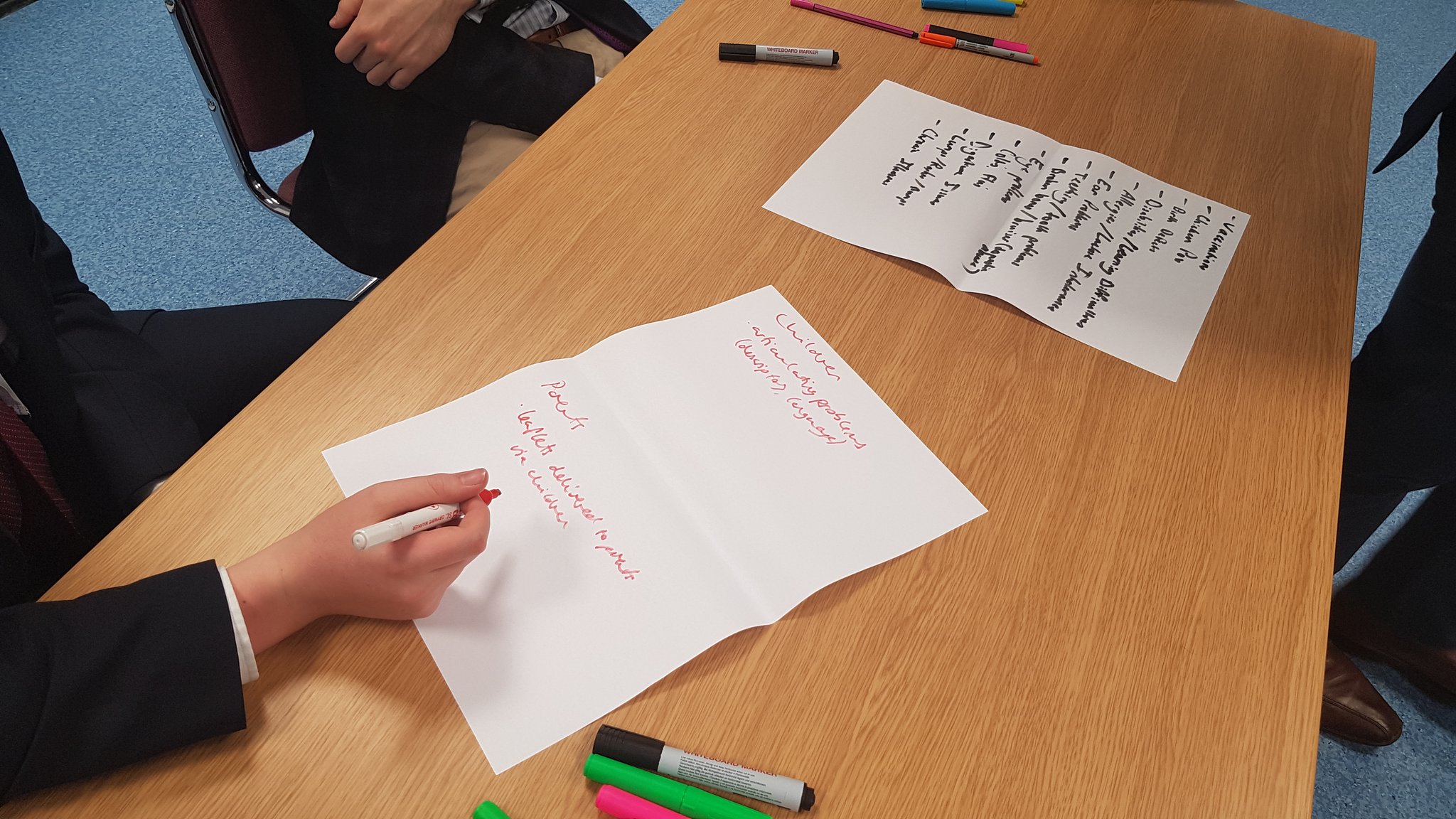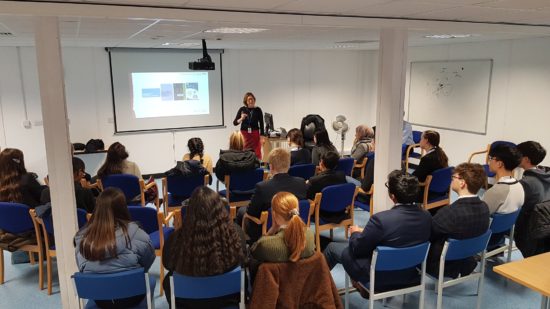How young people helped us to improve our consent procedures for paediatric research.
Just this last May DIAMONDS’ sister-project, PERFORM posted a news story on its website about the collaboration between PERFORM researchers and The Young Person’s Advisory Group North England (YPAGne); young people helping researchers develop their consent forms for the study. The impact of this relationship produced such great outcomes – both for researchers and YPAG members – that the same researchers have continued this relationship into DIAMONDS.
Perform news story: Why involving young people in research is important and how it changed the PERFORM study (opens in a new tab).
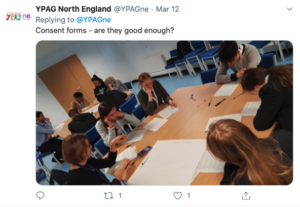
YPAG tweeted the members reviewing the DIAMONDS consent form; providing enriching perspectives on how a young patient and their family might be feeling.
YPAGne is 1 of the 15 groups across the UK which support the design and delivery of paediatric research in the UK. Dr Emma Lim and Prof Marieke Emonts with their team including Dr Ravi Mistry (junior doctor) at Newcastle upon Tyne Hospitals NHS Foundation Trust have engaged the YPAGne group to help to review the DIAMONDS consent and ethics process. The constructive feedback given by the group was incorporated into the patient information sheets and consent forms, which are being used to inform patients and families what it means to participate in the DIAMONDS research study.
For Emma, working with YPAGne again is exciting. “Every time I work with this group of children and young people, I am struck by their maturity, focus and attention to detail. They are adept at grasping difficult concepts and there is always something that I can learn from them. Involving young people in the early stages of research project design reaps huge benefits. They give you a novel viewpoint and are incredibly frank with their feedback (including about what needs changing!). For example, we had many discussions around the pros and cons of deferred consent but they told us:
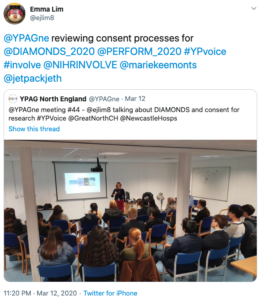
Dr Emma Lim with YPAG members introducing the DIAMONDS project and the research impact
“The patient may be emotionally stressed from the treatment, so there should be a delay between the treatment (and taking research samples) and asking for consent” – Female, 17y
“Emotions run high when a child gets suddenly ill so be cautious with how the subject is approached in a sensitive way while still keeping in the time for consent (24 hours)” – Female, 17y
Involving young people mean that your research is best adapted to recruit young people and allows new research directions to be driven by the opinions and interests of the children and young people likely to participate.”
The work with the young members has proven meaningful and purposeful not only for the researchers but also for the young people. 16-year-old Eujun Seo, YPAGne member tells us how he was involved and what struck him the most:
“Being involved with the DIAMONDS [PERFORM sister project] as a YPAGne member was such a unique experience – our group was first given the opportunity by Dr Emma Lim to read a draft of the DIAMONDS Search Participant Information Sheet, meant for people aged 12-15 years, and give feedback on how clearly the information was delivered. As a group, we assessed the sheet and presented our opinions (mostly positive!), and just to make the whole session even more interesting, we were put into role-plays as patients who were eligible to consent to the DIAMONDS project. I played the role of a 14-year-old leukaemia patient. I believe that the role-plays really allowed YPAGne members including myself to empathise with the patients in various contexts and give additional feedback on the information sheet.
If there is one thing about the session that really struck me, it was the fact that we were really listened to and able to make actual changes which we felt was necessary. It is not an everyday event that students like us can participate in such medical projects!” Eujun Seo, YPAGne member
The work with Eujun and the other members was undertaken in March before lockdown measures were implemented and YPAGne have since continued with virtual online meetings.
More about YPAGne the Great North Children’s Hospital
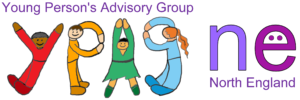
YPAGne (opens in a new tab) involves roughly 50 young persons of the community aged between 13-18 who meet monthly at the Great North Children’s Hospital (GNCH) in Newcastle upon Tyne. Established in 2015, YPAGne have now reviewed 93 research studies over 44 meetings. Their #YPVoice (opens in a new tab) has also advised healthcare professionals on their quality improvement (QI) projects (39 reviewed to date) and has influenced the triage process in paediatric A&E in the region, the design of the waiting area at the Children’s and Young Person’s Unit at the GNCH and many other projects. YPAGne members have presented at national and international conferences about their work and are active proponents of the voice of young people on social media platforms such as Twitter (follow @YPAGne) (opens in a new tab).


